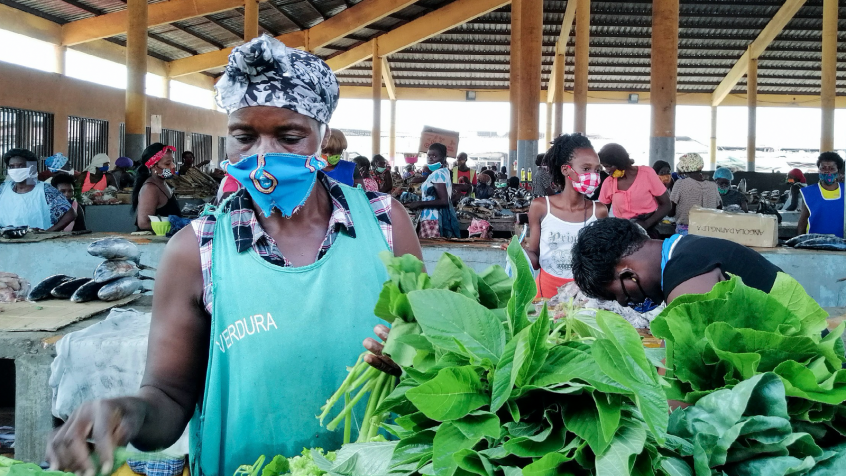
As the General Assembly held a special session in response to the COVID-19 pandemic, the side-event “Transforming agrifood systems and fostering inclusive rural development in the context of COVID-19 to end rural poverty” analyzed the economic, social and environmental potential of an inclusive process of agrifood system transformation for the eradication of rural poverty and achievement of the Sustainable Development Goals. Looking towards the 2021 UN Food Systems Summit, the discussion highlighted the holistic nature of the 2030 Agenda, and the strong interlinkages between the Sustainable Development Goals, their targets and the entire 2030 Agenda.
Transforming agrifood systems and fostering inclusive rural development in the context of COVID-19 to end rural poverty
As the General Assembly holds a special session in response to the COVID-19 pandemic, the side-event “Transforming agrifood systems and fostering inclusive rural development in the context of COVID-19 to end rural poverty” will analyze the economic, social and environmental potential of an inclusive process of agrifood system transformation for the eradication of rural poverty and achievement of the Sustainable Development Goals. Looking towards the 2021 UN Food Systems Summit, the discussion will highlight the holistic nature of the 2030 Agenda, and the strong interlinkages between the Sustainable Development Goals, their targets and the entire 2030 Agenda.
While significant global progress has been made in poverty reduction over the last few decades, an estimated 689 million people lived in extreme poverty as of 2017. About 80 percent of the world’s extreme poor reside in rural areas and most rely, at least in part, on agriculture and natural resource- based livelihoods, often having to cope with limited access to often degraded resources. The incidence of extreme poverty in rural areas is three times higher than in urban areas.
The COVID-19 pandemic has aggravated this situation, exacerbating inequalities and negatively impacting the lives and well-being of the rural poor, in particular of women, indigenous peoples and ethnic minorities and youth, while disrupting agrifood systems and increasing food loss and waste. It is estimated that an additional 88 to 115 million people will be pushed into poverty by COVID-19 in 2020.
Globally, food systems are the main source of livelihoods for nearly 4.5 billion people, two-thirds of which are informal in nature and one-third of which are at risk because of the COVID-19 pandemic. The rural poor are affected in at least three ways. First, many of them are engaged in the agrifood systems as smallholder producers, family farmers, fishers, foresters, pastoralists, agricultural wage workers, and workers and operators of micro, small and medium enterprises along food value chains. Second, more than 80 percent of the self-employed in rural areas and more than 90 percent of workers in the agricultural sector are informal. And, third, rural poor face not only inequalities in terms of access to decent jobs but also, among others, to adequate health care, education, sanitation, basic infrastructure, social protection, financing digital connectivity, technology and innovation.
Efforts to build back better from the COVID-19 pandemic and the 2021 UN Food Systems Summit offer unique opportunities to identify, agree and promote action, and will make our food systems more sustainable, resilient and inclusive, directly contributing to the eradication of rural poverty.
FAO, IFAD, WFP, UNDESA, in collaboration with the Permanent Mission of China to the UN and the Delegation of the European Union to the UN, will organize a side-event in the context of the UN General Assembly special session in response to COVID-19.
The virtual event will take place on 2 December 2020 from 1:00 pm to 3:00 pm (EST). Register here.
 Welcome to the United Nations
Welcome to the United Nations